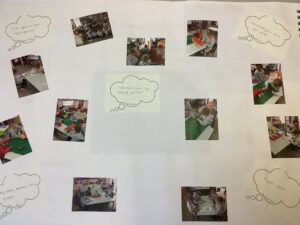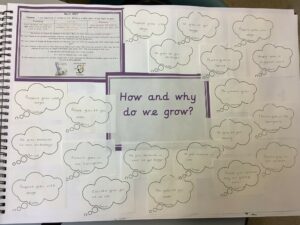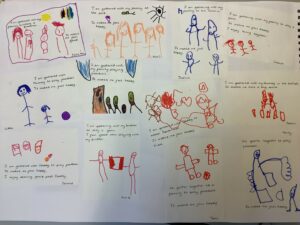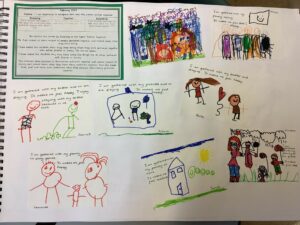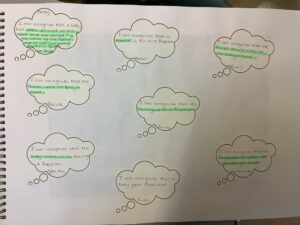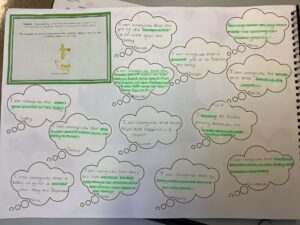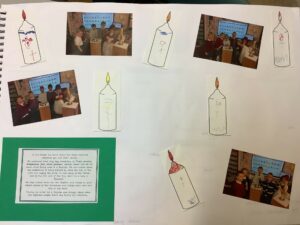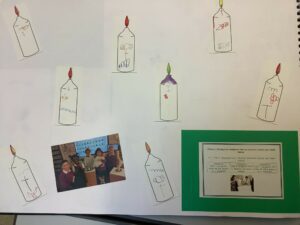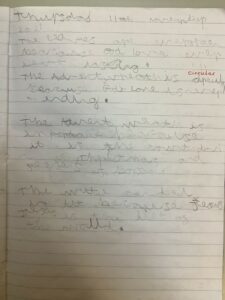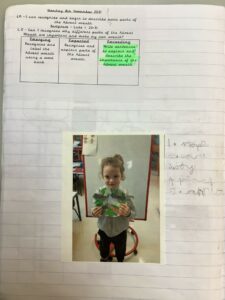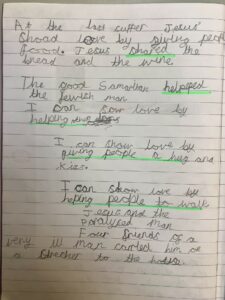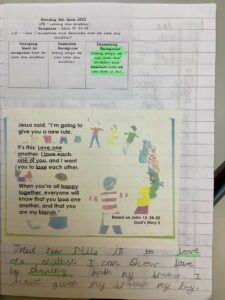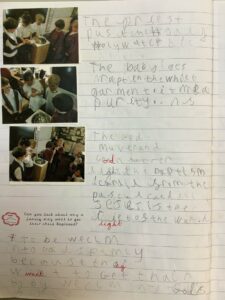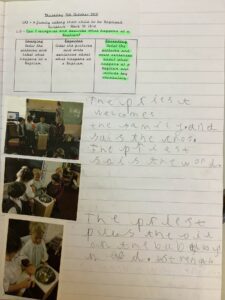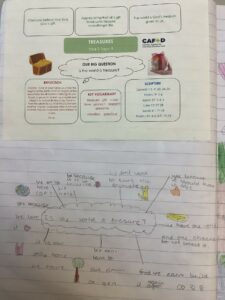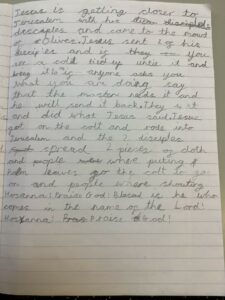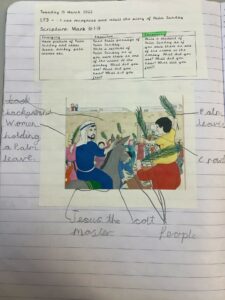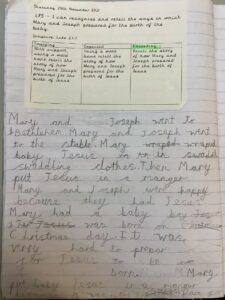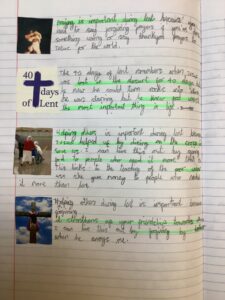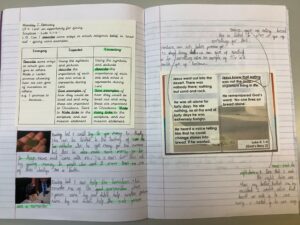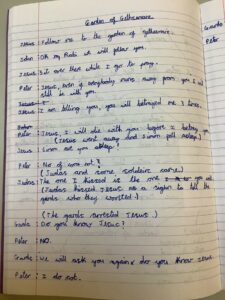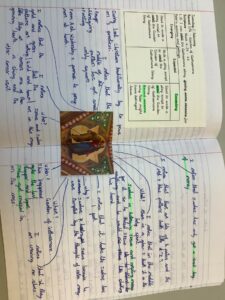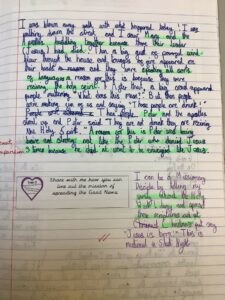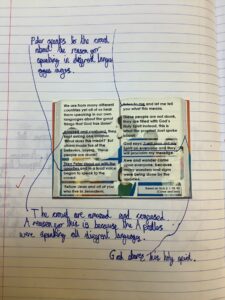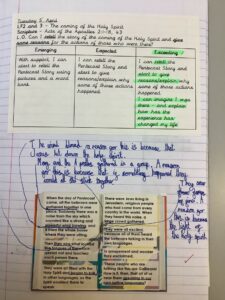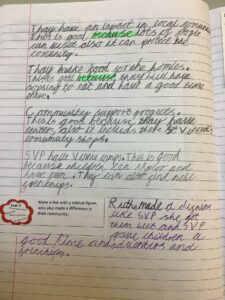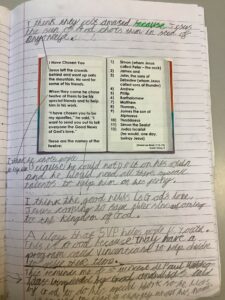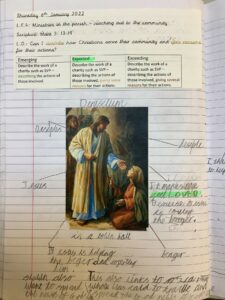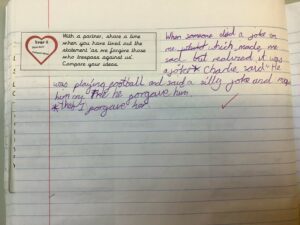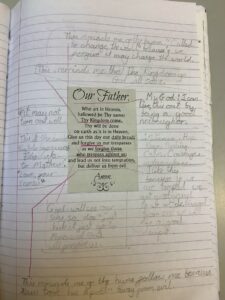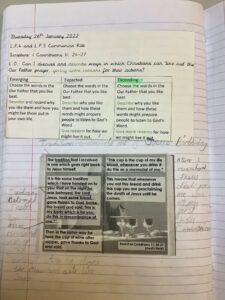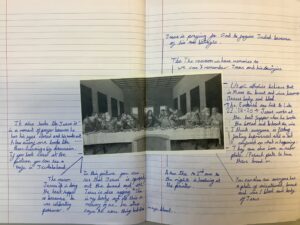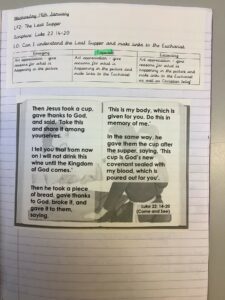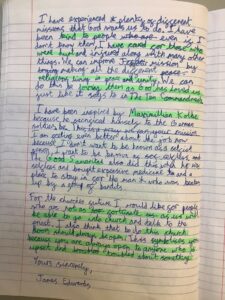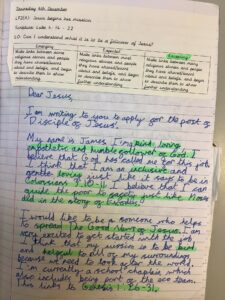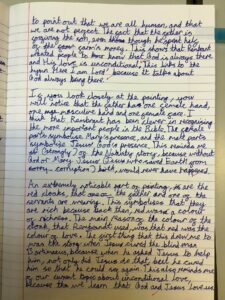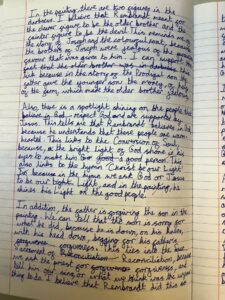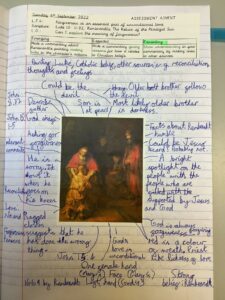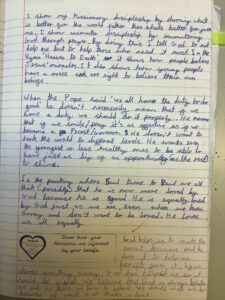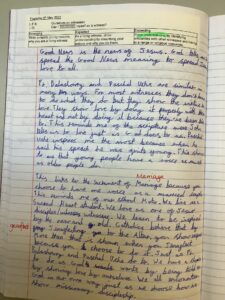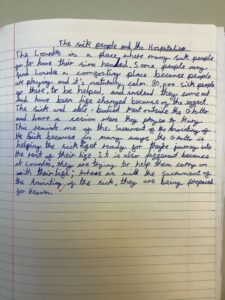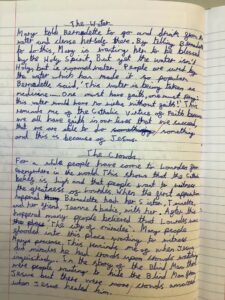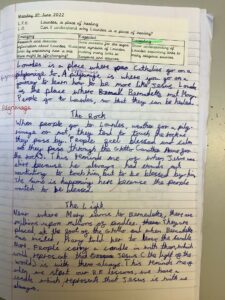RE Curriculum Overview
Religious Education is at the core of our curriculum, allowing us to develop children’s religious literacy, knowledge and understanding of their faith. We follow the ‘Come and See’ RE scheme of work, which is based on the truth revealed by God about ourselves, our life together and with God.
Come and See’ invites pupils to explore the religious aspects of life, dignity and purpose within the Catholic tradition. Pupils reflect on personal experiences and links are made with the Catholic faith, as well as other faith traditions. Judaism is taught each academic year and the world religions of Hinduism, Islam and Sikhism are taught on a three-year rota basis.
At the heart of our RE curriculum are the ‘Big Questions’, which ultimately drive the learning of the topic. These questions remain open ended and challenging, providing children with opportunities to engage with philosophy, encouraging pupil collaboration, oracy and reflection. For all children the programme will raise questions and provide materials for reflecting on their own experience. It will help them to explore the beliefs, values and way of life of the Catholic tradition and where appropriate, of other faith traditions. Please find the ‘Topic and Big Questions’ attached.
RE is a core subject and, in line with the Bishops’ Conference recommendations, 10% of teaching time is allocated to RE per week. This equates to two and a half hours for EYFS to Year 6. A variety of teaching methods and resources are used, including stories from the Bible, hymns, role play, creative activities, Knowledge Organisers, Respond Pages, Next-Step stickers, prayers, videos and discussion.
The pupils study three themes each term and 63 topics in total from Reception through to Year 6.
The themes are:
Advent term: Our church – Family, Baptism and Confirmation – Belonging, Advent and Christmas – Loving.
Lent term: Local church – Community, Eucharist – Relating, Lent and Easter – Giving.
Pentecost term: Pentecost – Serving, Reconciliation – Inter-relating, Universal church – World.
We look at scripture passages that match the topic being covered and unpick the meaning and how we can use this Scripture to enhance our lives and help us to be better Christians. As the children enter the KS2 classes they then link scripture to other scripture, hymns, Catholic Virtues, the Pope’s teachings, Sacraments, the current Bishop’s initiatives of Encounter, Discipleship and Missionary and Discipleship and other elements of Christian faith.
Knowledge/Understanding/Skills/Attitudes
The outcome of excellent religious education is religiously literate and engaged young people who have the knowledge, understanding and skills – appropriate to their age and capacity – to reflect spiritually, and think ethically and theologically, and who are aware of the demands of religious commitment in everyday life.
Religious Education Curriculum Directory 2012
This is delivered through the Come and See Programme:
• EXPLORE – by exploring their life experience to discover value and significance.
• REVEAL – by hearing, understanding and reflecting on the Christian message.
• RESPOND – by flashing back to learning in that topic, by celebrating and by applying it.
AT1, AT2 and AT3
Each topic with cover the three attainment areas: AT1 looks at learning factual information and building up a sound knowledge of scripture, AT2 focuses more how the behaviour of believers is influenced by their beliefs and AT3 asks the children to start thinking more philosophically. They are asked to wonder about different beliefs and teachings.
Please see the Year 1 example of End of Year Expectations and the driver phrases found in Year 1.
RE Assessment
We assess our children in RE using the Nottingham Diocese End of Year Expectations document, which uses key driver words for each year group. We make use of external and internal moderation opportunities to ensure the quality of teacher’s judgments, as well as book scrutinies to ensure work is engaging and is sufficiently challenging for all pupils.
Each term, parents receive an information sheet that details what the pupils will cover.
Marking and Feedback
When written work has been completed, exercise books are handed in at the end of the lesson and the teacher then analyses each child’s work. In Reception the teacher completes an assessment list to state which pupils achieved the emerging standard, which pupils achieved the expected standard and which children achieved the exceeded standard. KS1 teachers will carry out a minimum of two in-depth markings per topic where they will highlight each time the pupil achieves the focus driver phrase/s for that Learning Objective and they will provide a Next Steps sticker that will further develop one of the ‘AT’ areas for each child. In KS2 the minimum in depth marking is also two pieces of work. In other lessons the teacher simply assesses the standard achieved by the child by highlighting the relevant standard in the Task Box. Pupils and class teachers also complete the ‘I Can Statements’ box throughout the topic. The ‘I Can Statements’ in Sacred Heart refer specifically to the Learning Objectives from each topic.
In each term, the children carryout the Diocesan Assessment. These formal assessments provide staff opportunities to moderate their assessments with other colleagues and schools. They also help inform teacher assessments throughout the academic year. A selection of these assessments are sent to the RE Lead.
List of useful links……
https://missio.org.uk/primary-school-resources/
Catholic international development charity | CAFOD
Come and See (comeandseere.co.uk)
About Us (catholiceducation.org.uk)
CHRISTIAN ART | Daily Gospel Reading & Art Reflection
https://www.ndcys.com/resources/#single/0

